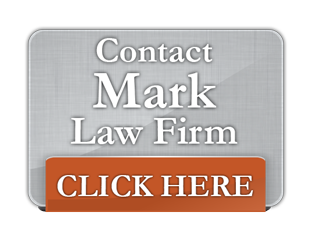 Looking for a job can be stressful. The difficult interview and hiring process can be even more difficult, however, if a previous employer gives you a negative reference. If your former employer gives you a bad reference, do you have any recourse?
Looking for a job can be stressful. The difficult interview and hiring process can be even more difficult, however, if a previous employer gives you a negative reference. If your former employer gives you a bad reference, do you have any recourse?
Bad References: Truth, Falsehoods, and Opinions
If you find out that a former employer has given you a bad reference, it’s important to find out whether the negative information was true and factual, untrue, or a matter of opinion. For example, if your previous employer said that you were “frequently late,” and your timecard records showed 10 late clock-ins over the course of six months, this may be a factually true statement. The law does not protect you from having an employer disclose truthful information like this, even if it damages your chances at future employment. A former employer is similarly not prohibited from sharing information that is clearly an opinion, e.g., if your supervisor opined that he thought you were “lazy” or “a jerk.” Only statements or implications of false facts are prohibited by defamation laws.
Defamation laws protect people from having falsehoods about them publicly disseminated. In New Jersey, a plaintiff pursuing a defamation case must show “(1) the assertion of a false and defamatory statement concerning another; (2) the unprivileged publication of that statement to a third party; and (3) fault amounting at least to negligence by the publisher.” Generally, a statement is defamatory if it "subjects an individual to contempt or ridicule . . . one that harms a person's reputation by lowering the community's estimation of him or by deterring others from wanting to associate or deal with him."[1] Generally, truth is an absolute defense to a cause of action for defamation, even when a statement is not perfectly accurate, as long as the substance or the gist of the statement is true.[2]
Negligent Misrepresentation
New Jersey, like many states, has not determined whether an employer has an affirmative duty to respond to a request for references for a prior employee at all, except in certain professions. (One exception is the New Jersey Healthcare Professional Responsibility and Reporting and Enhancement Act, often referred to as the “Cullen Act,” which requires hospitals and other medical providers to give out certain information relating to the competency of doctors, nurses, and other health care workers who previously worked for them and grants immunity to them for those statements.) An employer may simply choose to decline to provide a reference, provide minimal information like dates of employment and job title, or provide other limited information in accordance with its internal policies.
However, "[e]mployers who choose to respond to a reference inquiry…may be held liable for negligent misrepresentation based on misleading or incomplete statements made in employment references."[3] A jobseeker may have a valid claim if, during a reference check on a jobseeker’s prior employer,
- The inquiring party clearly identifies the nature of the inquiry;
- The prior employer voluntarily decides to respond to the inquiry and thereafter unreasonably provides false or inaccurate information;
- The person providing the inaccurate information is acting within the scope of his/her employment;
- The recipient of the incorrect information relies on its accuracy to support an adverse employment action against the plaintiff; and
- The plaintiff suffers quantifiable damages proximately caused by the negligent misrepresentation.
When to Seek an Experienced New Jersey Employment Lawyer
If you believe that you have been the victim of defamation or negligent misrepresentation by a former employer, you need to consult with an experienced New Jersey employment lawyer. The attorneys at the Mark Law Firm can help you determine whether you may have a claim and chart out the best course for you to pursue the justice and compensation you deserve. Contact us today to schedule a consultation.
[1] G.D. v. Kenny, 205 N.J. 275, 293 (2011).
[2] Ibid.
[3] Singer v. Beach Trading Co., Inc., 876 A.2d 885 (N.J. App. Div., 2005).



.svg)